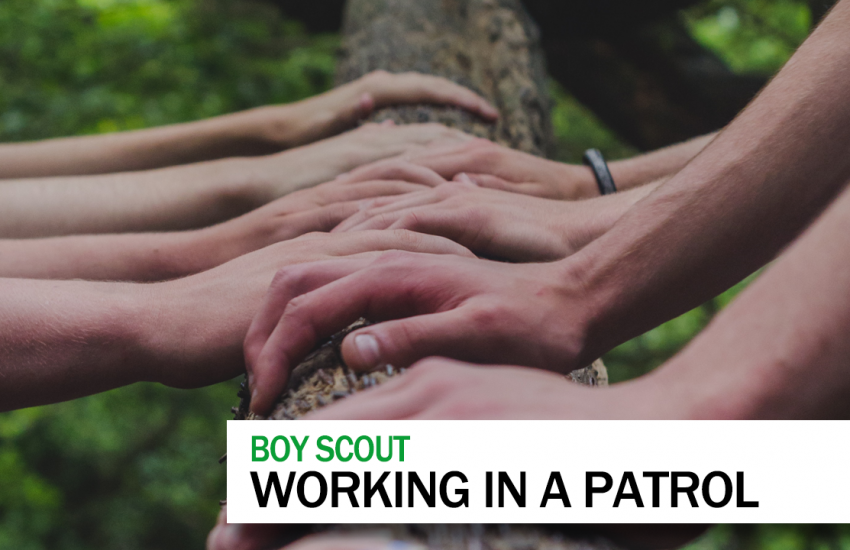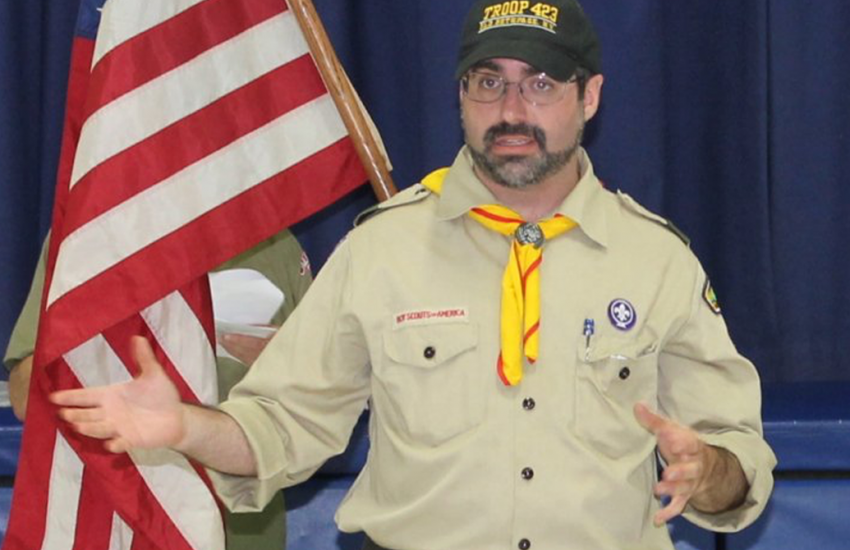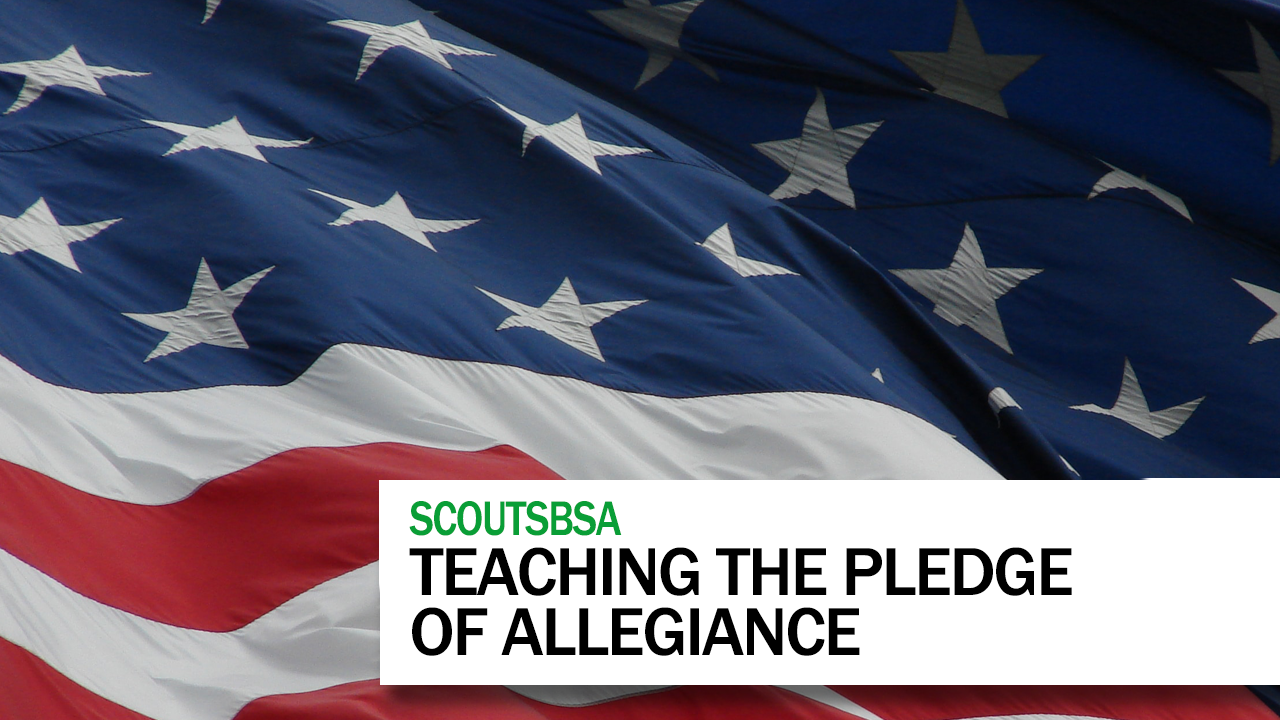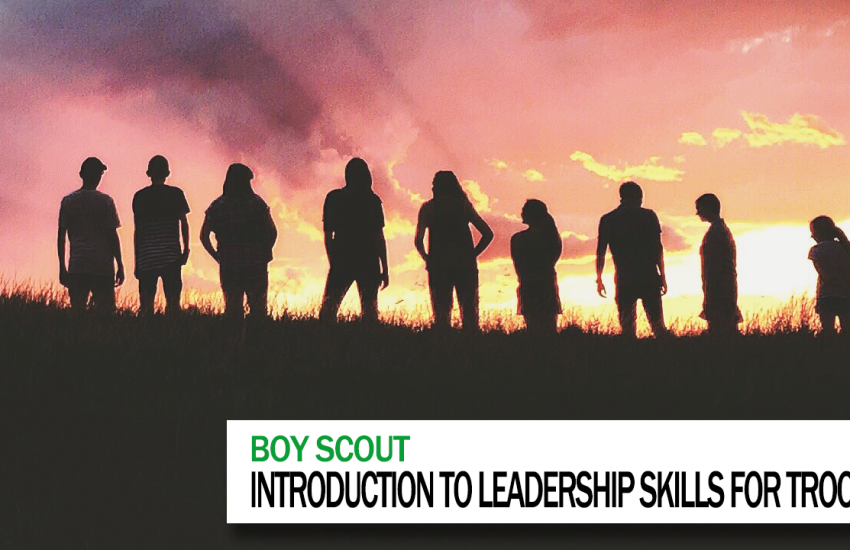Working in a patrol can be hard, and actually goes through stages to become a team. Learn the different stages of team building and how you can make it successful.
- A beginner’s guide to the patrol method – Bryan on Scouting (Link)
- Creating functional Boy Scout patrols – Scouting Magazine (Link)
- The Patrol Method – Do’s and Don’t (PDF)
- How to Fix Scout Patrol Problems – ScoutmasterCG (Link)
Transcript:
Anyone who has been to woodbadge might find this Scoutmaster Dave familiar, as working in a patrol is a major part of Woodbadge, so take Woodbadge.
Working in a patrol can be hard, and actually goes through stages to become a team.
The first stage is referred to as “Forming. This is where scouts get to know each other a bit, sort of like baby birds in a nest, they don’t do very much but al least they are not beating each other up with sticks.
The second stage of team development is “Storming” where they start to work together and begin to push against the boundries from the first phase. You see a lot of arguing and complaining in this stage.
Scouts can become frustrated and want to pail from the patrol because of these differing styles and ways of doing things.
In the next stage, called “Norming”, most of the problems are worked out, they figure out ways of working together and start to all point in the same direction.
The last phase is called “performing” and as the name indicates, they become an organized team and meet challenges together.
How long each group spends in any one of the stages is really dependent on the group.
As I’m sure you have seen, some groups just get it and start to work together, while some never really get there.
As a leader you can help this process along somewhat, by at first being a mediator and them evolving into a coach for the group. But there is rarely a group that doesn’t make some kind of progress when they are dealing with an adult leader directly.
The issues really are that they need to be able to work together when a leader is not looking over their shoulder.
This is especially true with younger scouts, as maturity is the great equalizer, and the petty nonsense seems to drift away, or at least turn to apathy when they mature.
Where it’s possible you want to try and have patrols that are a good balance of leadership and maturity. Out of 8 scouts if you have a core of 3 scouts that can carry the water, so to speak, it makes it easier to bring the other 5 up through teamwork and maturity.
You can help this along by encouraging team projects and exercises.
One of the most common is the camping trip. For a general camping trip, scouts camp and eat by patrol. This mean they need to have tent mates and determine a menu, shoping list and figure out who is purchasing supplies for the patrol.
During all this it’s important to stress working together as a team to solve these problems, a good start is to organize a duty roster for the trip, and get all attending to agree.
Additionally, you want to steer your lone wolfs into the group, and not let them suffer in silence, or take on larger responsibilities, like planning the menu independently of the rest of the group.
Sometimes admittedly it is like herding cats.
The more opportunities you can give to the group to show them the benefits of teamwork, the stronger the group can become. Doing this will allow them to see that it actually gets easier when everyone is pulling in the same direction.
Invariably however, you will come across one scout that is a detriment to the group, that despite your best efforts, will not work as a team.
These individuals tend to talk back, and to have excuses for everything from why they couldn’t clean a pot to why they can’t get the firewood.
As the leader, you need to reinforce why we need to follow our structure, and explain why its important to be a good team mate.
At the end of the day however, sometimes you need to move a scout to another patrol, or if the situation warrants it to let the scout family know that the troop may not be for him or her.
This is not the Marines, where you leave no man behind, and you need to ultimately do what is best for your troop.
If you have one child that does not want to participate as expected then you need to get ahead of it. What you don’t want is for your higher performers to decide that it’s not worth their effort and drop or change troops, then you aren’t left with a functioning troop or patrol.
Take what you like and leave the rest, and as we say in Woodbadge, feedback is a gift, leave yours below in the comments, with the hope we can all learn together.
I’m Scoutmaster Dave, and this was a little on Working in a Patrol.




